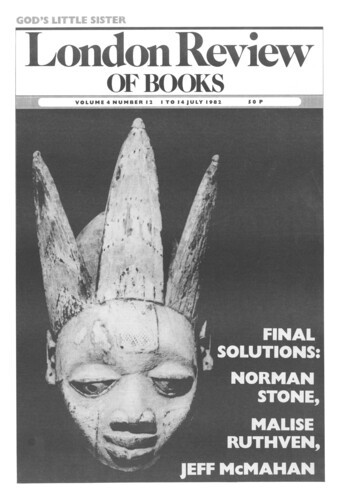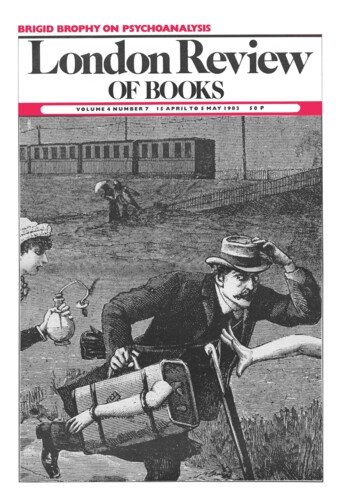Getting back
Adrian Poole, 1 July 1982
In what is by far the most rewarding item in Calder’s New Writing and Writers 19, the main character of Harry Mulisch’s ‘Antique Air’ thinks of the war as ‘an almost impenetrable barrier of death, fear, hunger’, separating him from his childhood. Yet paradoxically, the war is ‘perhaps his most precious possession, without which he can hardly imagine himself. Nor can he imagine what it can be like to live as he imagines his children have done, a life undivided by such a cataract. In his introduction to A crowd is not company, Robert Kee voices some similar thoughts about the experience of war in youth. In fact, the subject of his book is not so much ‘death, fear, hunger’, as the effects of a unique kind of confinement on a young middle-class Englishman of his generation – namely, the experience of a prisoner-of-war camp. He originally published it in 1947 as a novel and has now reissued it as an ‘autobiographical memoir’, unchanged except for a brief explanatory preface. It might seem odd for an author to claim a more intimate kind of formal responsibility for a narrative that now seems to him in retrospect to have ‘a strange authenticity, almost as if it had been written by someone else’. A meal could be made of this, but it would be a dull one. Everyone knows what it means, and there are many more interesting things about the book than what to call it. ‘Personal Narratives, British’ in the British Library Cataloguing Data on the fly-leaf has a quaint rightness to it.


